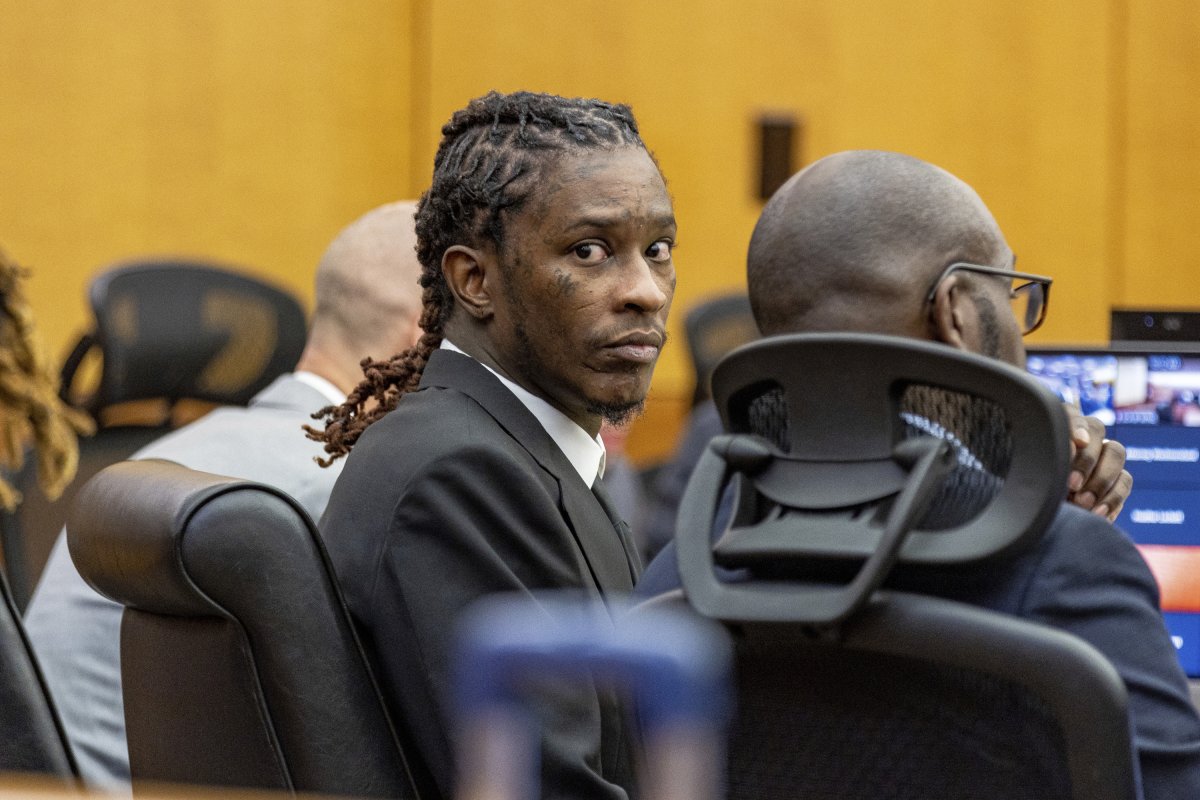Two co-defendants remain on trial with rapper Young Thug after three others accepted plea deals on Tuesday and Wednesday, all while the judge considers granting a mistrial motion filed by the defense. Young Thug, whose real name is Jeffery Williams, and two co-defendants are facing charges related to racketeering conspiracy and participation in criminal street gang activity, along with drug and gun violations. Williams is accused of violating Georgia's Racketeer Influenced and Corrupt Organizations (RICO) Act, which targets individuals working under a criminal organization.

Understanding the Co-Defendants
As the trial unfolds, it’s important to understand the roles of the co-defendants involved in this high-profile case. Among them, Rodalius Ryan, also known as Lil Rod, accepted a plea deal, which has significant implications for his future. This plea deal was a strategic move, allowing him to plead guilty to a conspiracy charge while receiving a sentence of 10 years commuted to time served.
Another co-defendant, Marquavius Huey, also accepted a plea deal and received a sentence of nine years in custody along with 11 years on probation. Each plea deal indicates a willingness to cooperate with authorities, possibly in exchange for lighter sentences. This dynamic raises questions about the overall impact on Young Thug's case and the potential for further plea deals among the remaining defendants.
The Legal Implications of the RICO Act
The Racketeer Influenced and Corrupt Organizations (RICO) Act plays a central role in this case, as it is designed to combat organized crime. Young Thug’s charges under this act signify serious allegations that could lead to significant penalties if he is found guilty. Understanding RICO is crucial, as it allows prosecutors to target not just individuals but entire organizations involved in criminal activities.
In this trial, the prosecution is attempting to establish that Young Thug and his co-defendants were part of a larger criminal enterprise. If they succeed, it could set a precedent for how similar cases are handled in the future, potentially leading to harsher sentences for those involved in gang-related activities. The ongoing trial serves as a reminder of the complexities of the legal system when dealing with organized crime.
Rodalius Ryan's Background and Plea Deal
Ryan's background paints a picture of a young man caught in a cycle of violence and crime. He accepted a plea deal on Wednesday, a significant decision that could affect his life for years to come. By pleading guilty to conspiracy charges, he hopes to navigate the legal system in a way that minimizes his time in prison.
His attorney, Leah Abbasi, highlighted Ryan's circumstances, arguing that his involvement was more about survival than criminal intent. This perspective is a crucial element in the ongoing dialogue about youth involvement in gang culture and the systemic issues that contribute to such situations.
Marquavius Huey's Journey
Marquavius Huey, also known as Qua, has had a tumultuous journey that led him to accept a plea deal. His charges include armed robbery and participation in a criminal street gang, highlighting the serious nature of his past actions. His plea deal represents a chance for redemption, allowing him to serve a reduced sentence while reflecting on his choices.
Huey's life experiences, including the loss of his father and struggles with homelessness, have shaped his perspective. His lawyer emphasized the importance of using his experiences to inform and guide young people away from similar mistakes. This narrative of hope and transformation is essential as the court system navigates these complex cases.
Quamarvious Nichols and the Mistrial Motion
Quamarvious Nichols agreed to plead guilty to conspiracy charges, but the trial has faced complications. His legal team filed a mistrial motion after a witness inadvertently revealed unredacted information during testimony. This incident raises questions about the integrity of the trial and the potential impact on Nichols’ future.
The judge has yet to rule on the mistrial motion, keeping both the prosecution and defense in a state of uncertainty. The outcome of this motion could significantly alter the course of the trial, emphasizing the delicate balance of justice and the importance of procedure in legal cases.
Jeffery Williams: The Artist Behind Young Thug
Jeffery Williams, widely known as Young Thug, is more than just a name in the music industry; he is a cultural icon. With over 27 million monthly listeners on Spotify, his influence spans beyond music to fashion and lifestyle. His career began in 2010 and has been marked by numerous collaborations and successful projects.
As he navigates the challenges of his legal battles, it is essential to remember the significant impact he has had on the music scene. His unique style and approach to rap have redefined genres and influenced many emerging artists. Yet, the current legal troubles serve as a stark reminder of the complexities that often accompany fame and success.
Insights into Deamonte Kendrick
You Might Also Like
Kamala Harris Regains Lead In Michigan: Latest Polling InsightsDC League Of Super-Pets: A Pawsitively Entertaining Adventure
Angel Reese: Rising Star Of The WNBA Struggles With Financial Realities
Trump's "Ron DeSanctimonious" Nickname: The Rivalry With DeSantis Explained
Meghan Markle: Age Controversy And Personal Background Exploration
Article Recommendations
- Mel Gibson Anti Semitism Racism Accusations 1512808
- Joe Alwyn Posts Brooding Photo After Taylor Swift Cozies Travis Kelce 1950189
- Tiffany Gomas Not Real Tiktok Video Ultra Right Beer Photo 1891657
- Sweatpea Owner Speaks About Dog Honored During 2024 Puppy Bowl 1869279
- Rainbow Bridge Closure What We Know 1846195
- Donald Trump Calls Jd Vance Town Hall Michigan 1974861
- Jonah Hill Sarah Brady Text Messages Full Transcript 1812193
- What Pamela Anderson Has Said About Sex Tape Tommy Lee Pamela Love Story Netflix 1776828
- Little Rascals Netflix Where Are They Now 2021 1582862
- New Jersey Map Population Shifting Crowded 1975080


